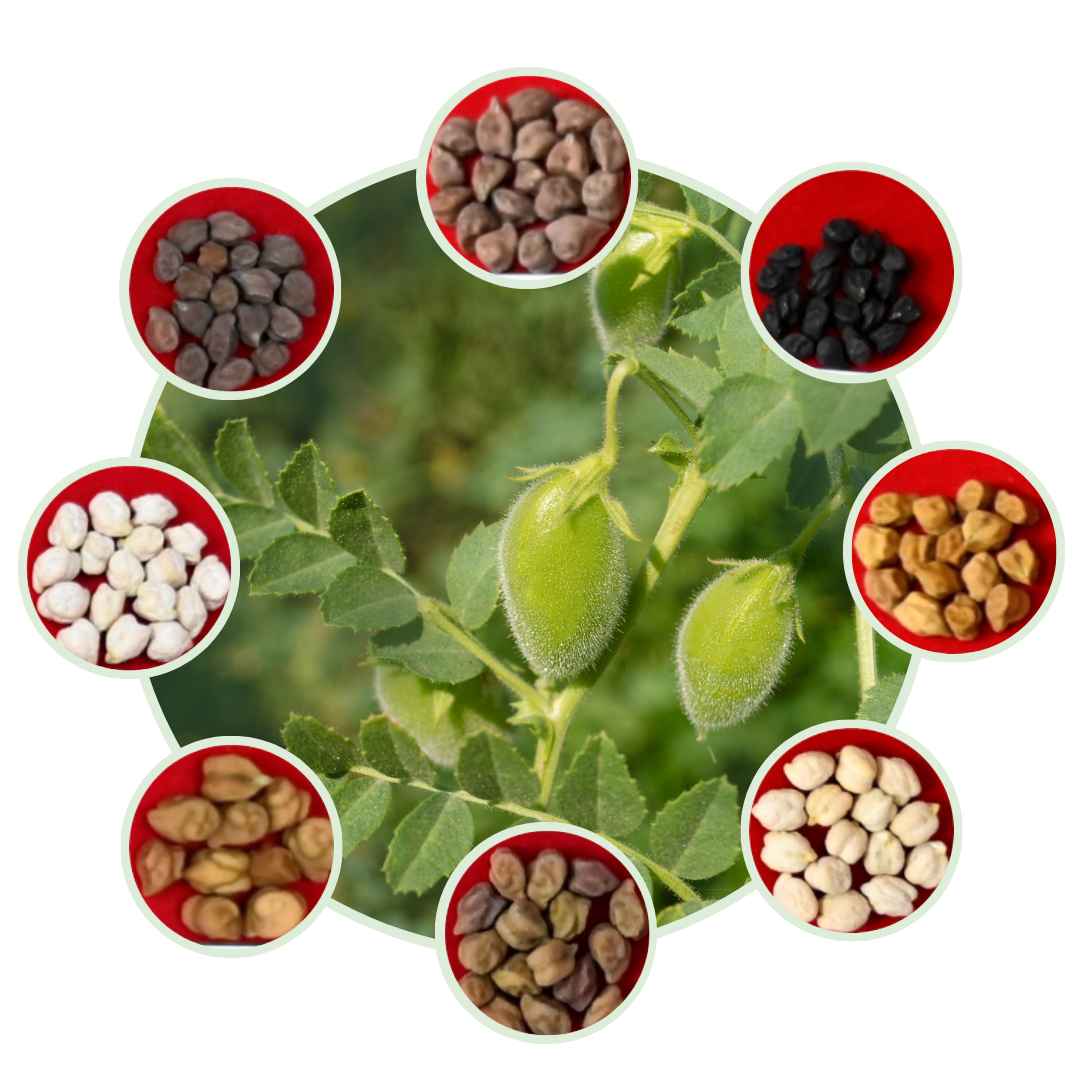ABOUT
A multi-institutional National Mission Program on “Characterization of Chickpea Germplasm Resource to Accelerate Genomics-assisted Crop Improvement” funded by Department of Biotechnology (DBT), Ministry of Science and Technology, Govt. of India has been launched in the year 2020 involving 15 participating institutions from Indian Council of Agricultural Research (ICAR), state agricultural universities, and international organization in which Biotechnology Research and Innovation Council-National Institute of Plant Genome Research (BRIC-NIPGR) serves as a Coordinating partner. The Mission Project envisages comprehensive phenotypic and genotypic characterization of a Pan Genebank Core of 5084 germplasm accessions (ICRISAT and NBPGR) and 6004 trait-specific genotypes, including germplasm accessions, pre-breeding lines, genetic stocks, wild Cicer accessions and released varieties, to identify novel superior genes/alleles governing traits of agronomic importance and promising trait-specific accessions (donors) for accelerating genomics-assisted breeding and crop improvement in chickpea. To constitute a morphological core, the multi-location DUS agro-morphological characterization of 5084 chickpea germplasm accessions using 22 Descriptor traits has been performed to identify accessions with superior yield component and plant architectural traits. The genotypic characterization of 11088 accessions using whole genome resequencing-based SNP genotyping has been accomplished to constitute a molecular core and subsequently an iterative core of chickpea. Comprehensive phenotypic characterization of 5084 Pan Genebank Core germplasm accessions identified promising accessions resistant/tolerant to the six biotic (Fusarium wilt, Ascochyta blight, Botrytis grey mould, collar rot, dry root rot and nematode resistance) and four abiotic (drought. heat, cold and salinity) stress tolerance traits as well as accessions of erect plant architecture types with superior agronomic performance and amenable to mechanical harvesting. Genome-wide association study (GWAS) has been initiated to delineate functionally relevant genomic loci governing DUS agromorphological, biotic and abiotic stress tolerance and mechanical harvesting traits in chickpea. These innovations collectively will be useful in the conservation of valuable global Pan Genebank crop germplasm (core/minicore) resources rich in useful trait characteristics and their utilization in developing improved genetically-tailored, climate-resilient chickpea varieties to ensure global food and nutrition security (Zero Hunger-SDG). The crop germplasm-based varieties of chickpea improved with desirable multi-trait characteristics showing superior agronomic performance across diverse adverse climatic conditions will provide sustainable transformative solutions to global bioeconomy based on their importance in diversified agrifood systems as well as consumer preference in trade and commerce.
GET STARTED







